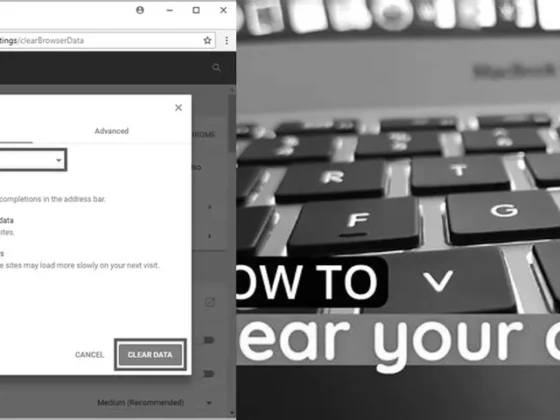Does Lockdown Browser Work on Chrome? A Comprehensive Guide for Chrome Users – Lockdowns are no longer just for prisons or zombie apocalypses. In today’s digital age, even your web browser can be put on lockdown. But does lockdown work on Chrome? Can it really prevent cheating and ensure a secure testing experience? Well, get ready to have your mind blown (or at least mildly interested) as we dive into the world of LockDown Browser for Chrome users. Whether you’re an educator trying to maintain academic integrity or a student looking to avoid the temptation of Googling every answer, this blog post has got you covered. So sit back, relax, and let’s explore the ins and outs of this trusted ally in online education.
Understanding the LockDown Browser for Chrome Users
With the rise of online education, ensuring the integrity of virtual examinations has become a paramount concern. LockDown Browser has emerged as a leading solution to this challenge. Designed for both educators and students, it serves as a digital proctor, keeping online exams secure by limiting the user’s ability to navigate away from the test or access unauthorized resources. But does it work on Chrome, the world’s most popular web browser? Let’s delve into the specifics of how LockDown Browser integrates with Chrome to maintain exam integrity.
LockDown Browser: A Chrome Extension Solution
Yes, LockDown Browser does indeed work on Chrome. It’s available as an extension in the Chrome Web Store, tailored specifically to function within the Chrome ecosystem. This means that students and educators using Chromebooks or the Chrome browser on other operating systems can take advantage of the secure testing environment it provides.
Installing LockDown Browser on Chrome
To get started with LockDown Browser on Chrome, users can easily install it from the Chrome Web Store. The process is straightforward:
- Navigate to the Chrome Web Store.
- Search for “LockDown Browser.”
- Select “Add to Chrome” on the LockDown Browser extension page.
- Confirm the installation when the pop-up window appears.
Once the extension is added, the LockDown Browser for Chromebook or other Chrome-compatible devices is ready to use. When students launch an examination through the LockDown Browser, they can rest assured that their test is protected against digital cheating methods.
Preventing Cheating with LockDown Browser
LockDown Browser is like a watchful guardian for online exams. It uses various security measures to block common and sophisticated cheating tactics:
- Virtual Machines: Creating a separate operating environment is blocked.
- Remote Desktops: No remote access to the test-taking machine is allowed.
- Screen Sharing: Sharing the screen with others is prevented.
- Instant Messaging: Communication with peers during exams is barred.
- Screen Recording: Recording the exam screen is not possible.
By blocking these methods, LockDown Browser ensures that students must rely on their knowledge and preparation to succeed, fostering a fair testing environment.
Troubleshooting LockDown Browser on Chrome
Even the best digital tools can sometimes encounter issues. If students or educators face problems with LockDown Browser on a Chromebook or other Chrome-enabled device, several troubleshooting steps can be taken:
- Clearing Cache and Cookies: Accumulated data can sometimes interfere with browser extensions. Clearing the cache and cookies can resolve unexpected behavior.
- Updating the Operating System: Ensuring that the Chrome OS or other operating systems are up-to-date can improve compatibility and performance.
- Restarting the Device: A classic fix for many tech issues, restarting the device can often resolve minor glitches affecting the browser.
These steps can help restore LockDown Browser’s functionality, allowing students to proceed with their exams without undue stress.
Ensuring a Secure Testing Experience
The integration of LockDown Browser with Chrome reflects the commitment to maintaining the integrity of online examinations. The browser extension is designed to create a secure and distraction-free environment, allowing students to focus solely on the task at hand.
How LockDown Browser Enhances the Online Exam Experience
By eliminating the possibility of unauthorized information access, LockDown Browser:
- Promotes honesty and academic integrity.
- Levels the playing field for all test-takers.
- Reduces the administrative burden on educators by automating exam security.
This robust solution underscores the importance of fair assessment practices in the digital age, where the temptation to circumvent rules can be high.
Conclusion: A Trusted Ally in Online Education
In conclusion, LockDown Browser does work on Chrome, offering a reliable way to safeguard online exams. As a Chrome extension, it’s easily accessible and user-friendly, ensuring that technology enhances the educational experience rather than complicating it. Whether you’re an educator striving to uphold the integrity of your assessments or a student aiming to demonstrate your true capabilities, LockDown Browser stands as a testament to the potential of technology to support the highest standards of academic honesty.
Final Thoughts and Best Practices
For those embarking on the journey of using LockDown Browser with Chrome, remember these best practices:
- Test the LockDown Browser installation well before exam day to ensure everything functions as expected.
- Keep communication lines open between students and educators to address any concerns or issues promptly.
- Stay informed about updates to both Chrome and LockDown Browser for optimal performance.
By adhering to these guidelines and embracing the capabilities of LockDown Browser, the educational community can continue to thrive in the ever-evolving landscape of online learning.
FAQ & Related Questions about LockDown Browser on Chrome
Q: Does LockDown Browser work on Chrome?
A: Yes, LockDown Browser can be installed as a Chrome extension from the Chrome web store.
Q: What does LockDown Browser prevent students from doing during online exams?
A: LockDown Browser prevents students from searching the internet and accessing other applications during online exams.
Q: What methods of cheating does LockDown Browser block?
A: LockDown Browser blocks various methods of cheating, such as the use of Virtual Machines, remote desktops, screen sharing, instant messaging, and screen recording.
Q: How can I install LockDown Browser on Chrome?
A: To install LockDown Browser on Chrome, go to the Chrome web store and select “Add to Chrome” after finding the LockDown Browser extension.
Q: What should I do if I experience issues with LockDown Browser on a Chromebook?
A: If experiencing issues with LockDown Browser on a Chromebook, you can try clearing the cache and cookies, as well as updating the operating system.


